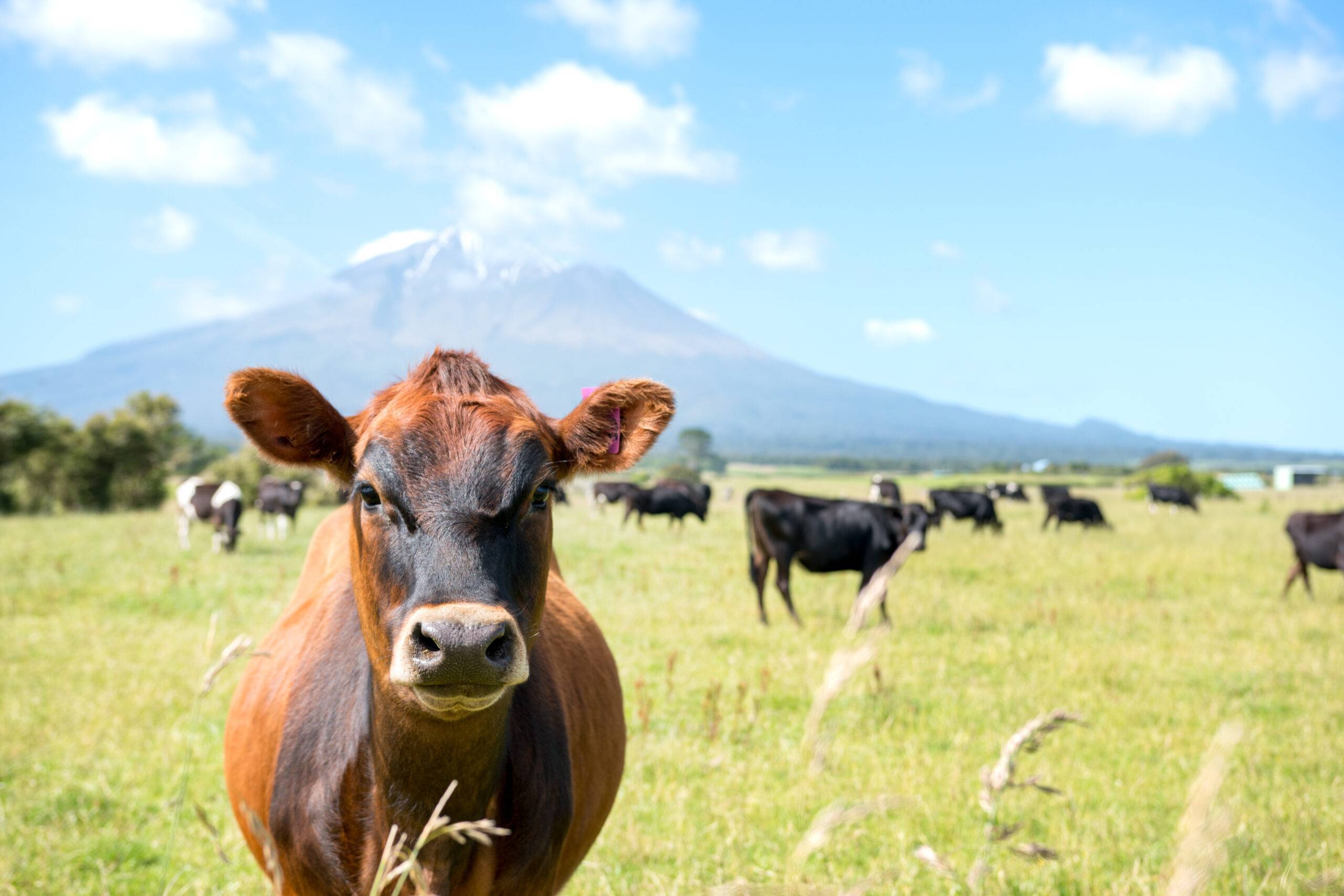New Zealand’s livestock production uses sustainable methods . . .
In New Zealand our grass-fed livestock production is considered more sustainable than other regions. This is due to factors including its unique climate, land conditions and proactive industry initiatives. Key sustainable practices include rotational grazing, minimal irrigation, mitigation of methane emissions and strict animal welfare.
- Pasture-based farming systems
New Zealand’s moderate temperatures, fertile soil, rainfall and sunshine enable lush green grass for cows to graze. According to NZMP (NZ Milk Products) science shows that New Zealand’s pasture-based system supports maximum productivity from a water and fossil energy use perspective when compared to feedlot farming. Housed cows receive a larger amount of supplementary feed in their diet – this requires high fossil fuels to cultivate, harvest and transport these crops to barns. This compares to cows grazed in pasture. These pastures are primarily rain-fed which minimises water usage compared with grain-fed systems.
- Rotational grazing
The New Zealand climate supports perennial pastures which are ideal for rotational grazing – an efficient method which reduces the need for additional food or agrichemicals. It is a livestock and pasture management system that follows natural grazing patterns, working on the principle of ‘graze and rest.’ Livestock are rotated between paddocks to a schedule – this rotation allows the pasture to recover and rejuvenate for the next grazing. It means enhanced nutritional quality and improved feed for livestock. Farmers can alter rotation schedules depending on changing weather patterns, livestock requirements and seasonal differences in forage growth.
- Mitigating methane emissions:
New Zealand invests heavily in research to develop methane mitigation technologies. Research efforts involve collaboration between scientists, farmers, and industry organisations. Efforts are underway to reduce methane emissions through improved animal diets, vaccine development, genetic selection for lower methane-producing animals, and better manure management – Bio-filters, aeration and switching to drier or more aerobic systems can significantly reduce methane emissions.
Vegetation sequestration is strong on New Zealand farms – significant native bush plantings and plantation forests, help store carbon from the atmosphere.
- Animal welfare:
New Zealand’s animal welfare standards rank among the world’s best, with animals living naturally and having access to open pasture. Outdoor farming reduces the need for antibiotics, and their use is strictly controlled. Strict biosecurity and quality control processes, together with our geographic isolation, result in an animal BSE/ TSE disease-free status.
Veterinarians play a key role, working on the front line at meat processors to ensure the welfare of animals, and that our food and animal products are safe and suitable.
The best broth delivered to you . . .
Using the best in these 100% sustainable quality New Zealand beef bones, we offer nutritionally dense ingredients to enrich your product range. Along with collagen, our broths and extracts are a rich source of essential vitamins and nutrients, providing a valuable sustainable source for your recipes. Discover our range of Butler premium ingredients here https://taranakibioextracts.com/food-ingredients/
Ends.
